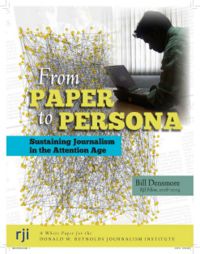Persona-defined
What do we mean by "persona"?
Most of us think of our identity as how we appear, where we live, who our friends are, what interests us and what we do.
On the Internet those things are translated into data – called “attributes.” A collection of attributes make up our identity for purposes of an online transaction or event. Experts who study Internet identity systems call this collect of attributes a “persona.” An individual might want to have different personas for different purposes – what you share with your health provider is different from what you share on your Facebook page or with your news provider.
The Jericho Forum's 10 identity commandments defines "persona" as "A user-centric term. An entity uses a persona to represent an aspect of itself (such as, parent or employee and client or a server) through a collection of attributes, in any interactive situation."
The classic application of the word "persona" was to describe the metaphorical masks that an actor wears to play different roles at different times. In that same way, we may wish to present different faces to different people or entities at various times and for various purposes. Far from being false, these different faces, or persona, may simply be portions of our full identity.
-- Bill Densmore
READ AN EXECUTIVE SUMMARY
VIEW BILL DENSMORE PRESENTATION
DOWNLOAD THE WHITE PAPER
DOWNLOAD SEVEN-PAGE SUMMARY
LISTEN to April 27 discussion
JOIN DISCUSSION
REFERENCE LINKS
An Information Trust Association will recognize in its governance structure the interests of at least four different constituencies: rights-holders (authors/artists), publishers (aggregators), audience-owners (banks, publishers, billers etc.), and end-users.
